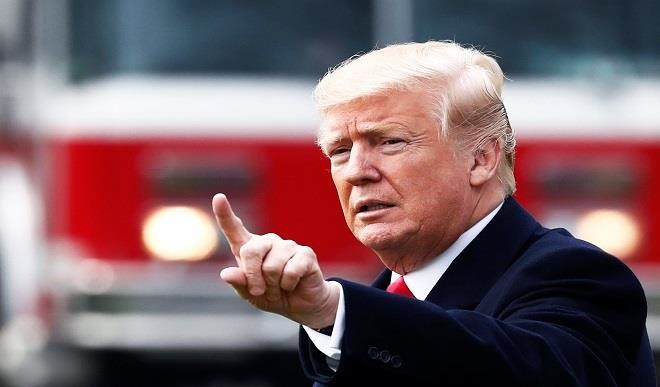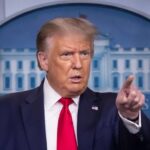U.S. President Donald Trump on Friday demanded that states allow religious services to take place again this weekend, thus ending shutdowns that were part of efforts to stem the spread of the new coronavirus.
Trump made the proclamation, which he phrased in the form of a verbal order, from the White House briefing room.
His exact authority to dictate to states was unclear, but his words will carry political weight and potentially add pressure on state officials.
“Today I am identifying houses of worship – churches, synagogues and mosques – as essential places that provide essential services,” Trump said, meaning they can be open during the pandemic.
He said the Centers for Disease Control (CDC) would be issuing guidance “at my direction,” although no CDC directives had been issued at the time of his speech.
Trump’s comments come amid reports that public health officials were hesitant to release sweeping recommendations on reopening houses of worship.
Church closures have stoked parts of Trump’s conservative base.
There is a partisan divide on lockdown orders, and, while the majority of the country remains concerned about the virus, Republicans are somewhat less wary and more likely to want faster reopenings.
“I call upon governors to allow our churches and places of worship to open, right now,” Trump said, adding that “the people are demanding” to be able to attend services at churches, synagogues, and mosques.
Trump said he will “override” any governor who does not allow in-person worship.
However, it is unclear if he has any authority to do so.
Kayleigh McEnany, the White House spokesperson, would not clarify what law the president can invoke to override local public health orders.
Normally, the judiciary would weigh in on decisions by governors deemed to be in violation of state or federal constitutions.
The U.S. Justice Department has backed churches that are suing states regarding the closures, arguing that houses of worship should be considered essential businesses.
The U.S. Constitution protects full freedom of religion and the church closures have proven to be a thorny issue.
Conservative groups have been calling for more lax rules on churches, despite some outbreaks traced back to places of worship.
Meanwhile, some pastors have defied public health orders and conducted in-person gathering.
Republican-controlled states are pushing for quicker economic reopenings, while some Democrat-controlled areas are largely taking a more cautious approach.
In California, the nation’s most populous state, more than 3,000 individual churches are expected to reopen later this month, regardless of public health orders, according to a report in the Sacramento Bee newspaper.
Churches and other religious services are grouped with movie theatres and hair salons in California’s reopening plan.
Some states, however, have already moved to allow some religious services to resume.
According to Pew research, about a third of U.S. people attend religious services once a week, a number that has been in steady decline in recent years.
The percentage of people who say they seldom or never attend prayers is on the rise. (dpa/NAN)

 Join Daily Trust WhatsApp Community For Quick Access To News and Happenings Around You.
Join Daily Trust WhatsApp Community For Quick Access To News and Happenings Around You.


